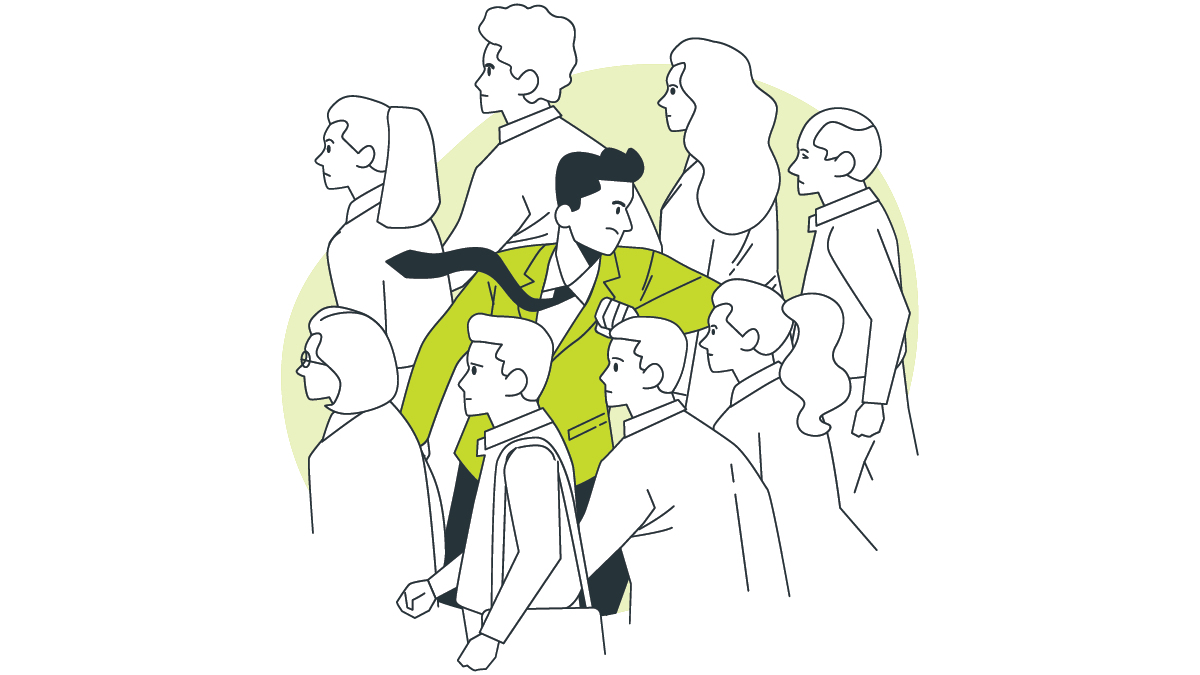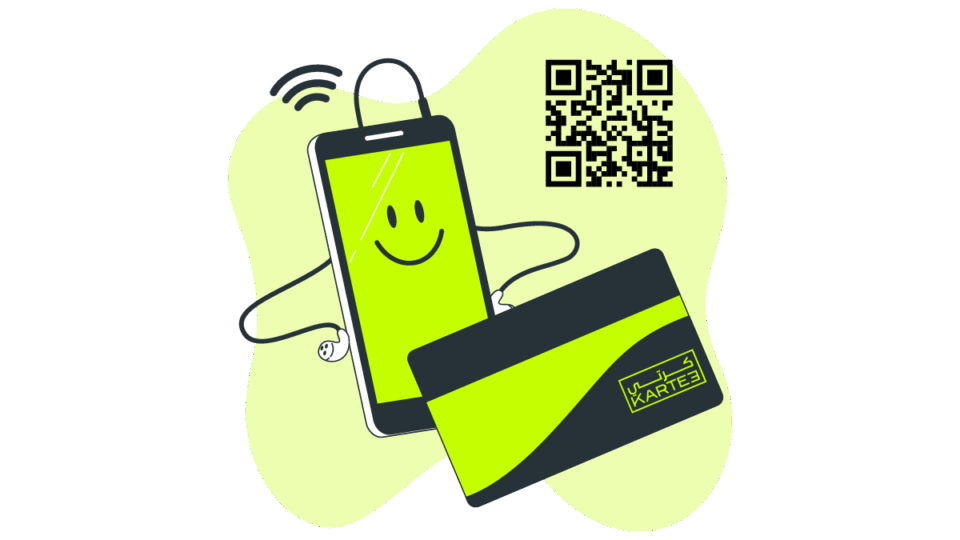
Stand Out from the Crowd: Why NFC Business Cards Are the Must-Have Tool for Entrepreneurs
June 11, 2025
The Trojan Card: The Hidden Cost of Cheap Digital Business Cards
June 12, 2025
Introduction to the Digital Business Card Revolution
In a world that thrives on speed, convenience, and innovation, traditional business cards are quickly being replaced. Digital business cards are revolutionizing how we share information, make first impressions, and build meaningful connections.
Once limited to paper exchanges at conferences and meetings, networking has entered the digital age - bringing efficiency, customization, and eco-conscious solutions along for the ride. Whether you're a solopreneur, corporate executive, or freelancer, going digital is no longer a novelty - it’s a necessity.
Let’s explore the top five reasons why digital business cards are becoming the go-to networking tool in 2025 and beyond.
Reason #1: Instant Connectivity and Seamless Sharing
Gone are the days of fumbling through your wallet for a crumpled card. With digital business cards, sharing your contact details takes just a tap or scan.
-
Instant Sharing via NFC or QR Code: Simply tap your phone or let someone scan a QR code - your entire contact profile appears instantly.
-
Universal Compatibility: Most digital card platforms work across iOS and Android devices without needing a dedicated app.
-
Link Sharing: Send your business card through email, text, social media, or Zoom chats - perfect for remote networking.
This frictionless experience not only saves time but ensures your information is shared accurately every time.
Reason #2: Eco-Friendly and Sustainable Solution
Every year, over 7 billion paper business cards are printed - and nearly 88% are thrown away within a week. That’s a staggering amount of waste for something so short-lived.
-
Go Paperless: Reduce your environmental footprint by eliminating the need for physical cards.
-
Support Green Initiatives: Many digital card providers are aligned with sustainability goals.
-
Show Social Responsibility: Clients and partners increasingly value environmentally conscious practices.
By adopting digital cards, you’re not just saving trees - you’re sending a powerful message about your commitment to the planet.
Reason #3: Dynamic and Real-Time Updates
Traditional business cards become obsolete the moment your job title changes or you switch emails. Digital business cards solve this problem effortlessly.
Benefits of Dynamic Profiles:
-
Live Editing: Change your phone number, website, or title without reprinting anything.
-
Instant Syncing: Updates are reflected the next time your card is viewed or shared.
-
Version Control: Create different versions for various audiences or roles.
This adaptability ensures that your contacts always have the latest, most relevant information - without needing a new card.
Reason #4: Integration with Digital Tools and Analytics
Networking isn't just about making connections - it’s about nurturing them. Digital business cards are built with this in mind.
Smart Features Include:
-
CRM Integrations: Seamlessly sync new contacts with platforms like HubSpot, Salesforce, or Zoho.
-
Automated Follow-ups: Set reminders or auto-responses after someone views your card.
-
Data Insights: Track link clicks, card views, and engagement metrics.
This data-driven approach turns passive exchanges into powerful lead generation opportunities, making follow-up faster and smarter.
Reason #5: Enhanced Personalization and Branding
Your business card is often your first impression - why not make it unforgettable?
Digital cards offer:
-
Custom Designs: Choose brand colors, fonts, and logos.
-
Media Elements: Add intro videos, voice notes, or client testimonials.
-
Multiple Links: Include your website, social handles, calendars, and more.
With such flexibility, your card becomes a reflection of your personality, brand, and professionalism - all in one sleek link.
Comparison: Traditional vs. Digital Business Cards
Let’s look at how digital business cards stack up against their traditional counterparts:
|
Feature
|
Traditional Business Cards
|
Digital Business Cards
|
|---|---|---|
|
Share Method
|
Hand delivery
|
Tap, scan, or link
|
|
Customization
|
Limited to print design
|
Fully customizable with media
|
|
Updates
|
Requires reprinting
|
Real-time updates
|
|
Eco Impact
|
High paper waste
|
Environmentally friendly
|
|
Cost Over Time
|
Recurring printing costs
|
Low recurring costs
|
|
Integration
|
None
|
CRM, calendars, analytics
|
|
Interactivity
|
Static
|
Clickable links, videos, CTAs
|
|
Convenience
|
Easy to lose or damage
|
Always accessible on your phone
|
It’s clear: digital business cards offer greater flexibility, functionality, and long-term value - making them a smarter choice for the modern professional.
The Growing Adoption Among Professionals and Industries
Across various sectors, professionals are switching to digital business cards to enhance their networking game. Here’s a glimpse into who’s making the leap:
Tech & Startups
Startups love innovation - and what’s more innovative than sharing your pitch, demo link, and contact info with a single tap?
Real Estate
Agents are embedding listings, maps, and virtual tours in their cards, turning every encounter into a sales opportunity.
Healthcare & Legal
Doctors and attorneys use digital cards to direct clients to appointment booking tools, testimonials, and secure contact forms.
Creative Industries
Designers, artists, and marketers showcase portfolios and social handles right from their card, increasing visibility and engagement.
Even corporate teams are equipping employees with branded NFC cards for events, trade shows, and internal collaboration.
How to Get Started with a Digital Business Card
Ready to make the switch? Here’s a quick guide to getting started:
1. Create Your Profile
Include:
-
Full name, job title, company
-
Email, phone, website
-
Social media links
-
Profile image or intro video
2. Personalize Your Design
Match your brand aesthetic with custom colors, logos, and font choices. Some platforms even let you upload your business intro video.
3. Share It Everywhere
-
Add the link to your email signature
-
Include a QR code on printed materials
-
Share on social media
-
Use during Zoom calls and events
4. Track and Improve
Monitor who views your card, which links get the most clicks, and optimize accordingly. This isn’t just a business card - it’s a performance tool.
Addressing Common Concerns and Misconceptions
Some professionals are hesitant to adopt digital business cards due to myths and misunderstandings. Let’s clear them up:
“What if someone doesn’t have a smartphone?”
You can also share your digital card via email or print a QR code on a paper card for hybrid options.
“Are digital cards secure?”
Reputable providers use encrypted links and data protection standards. You can control what’s visible and to whom.
“They’re only for tech-savvy people.”
On the contrary, most platforms are user-friendly. If you can operate a smartphone, you can use a digital business card.
FAQs About Digital Business Cards
1. Can I use a digital business card without an NFC card?
Yes. KARTEE allow you to share your card via Apple & Google Wallet, a link, email, or QR code - no NFC needed.
2. Do recipients need an app to view my card?
No. Your card opens in any web browser for quick and easy access.
3. Can I add a calendar link or booking button?
Absolutely. KARTEE allow integration with tools like Calendly, Doodle, or your own booking system.
4. Is it possible to track who views my card?
Yes, analytics features show who clicked, when, and what they interacted with.
5. Can I have multiple cards for different purposes?
KARTEE allow multiple profiles - great for freelancers with multiple roles or professionals wearing many hats.
Final Thoughts: Why the Shift to Digital is Inevitable
Networking is evolving - and digital business cards are leading the charge. They’re faster, smarter, greener, and more impactful than anything that came before. Whether you're attending a conference, jumping into a video call, or just meeting someone at a café, a digital card ensures you're always ready to connect.
By adopting this future-forward tool, you're not just keeping up with the times - you’re getting ahead of the curve.
Unlock Your Business Potential with KARTEE
Get in touch today to transform your networking with cutting-edge digital business cards.


